How To Use The Impulse IQ Backtester
The Impulse IQ backtester is your personal tool to prove that Impulse IQ works.
With the Impulse IQ backtester you can backtest any asset/timeframe combination, and even create your own Impulse IQ strategy to set alerts for!
Note
While Impulse IQ will always trade optimally, using the Impulse IQ backtester allows you to replicate Impulse IQ's performance while skipping all the chart visualizations. Traders can deep dive into statistics with the backtester, export Impulse IQ trades to an excel file, set alerts, and much more!
How To Use The Impulse IQ Backtester
As complex as Impulse IQ's underlying processes are, the backtester is incredibly simple to use.
Step 1: Go to the asset/timeframe you wish to test.
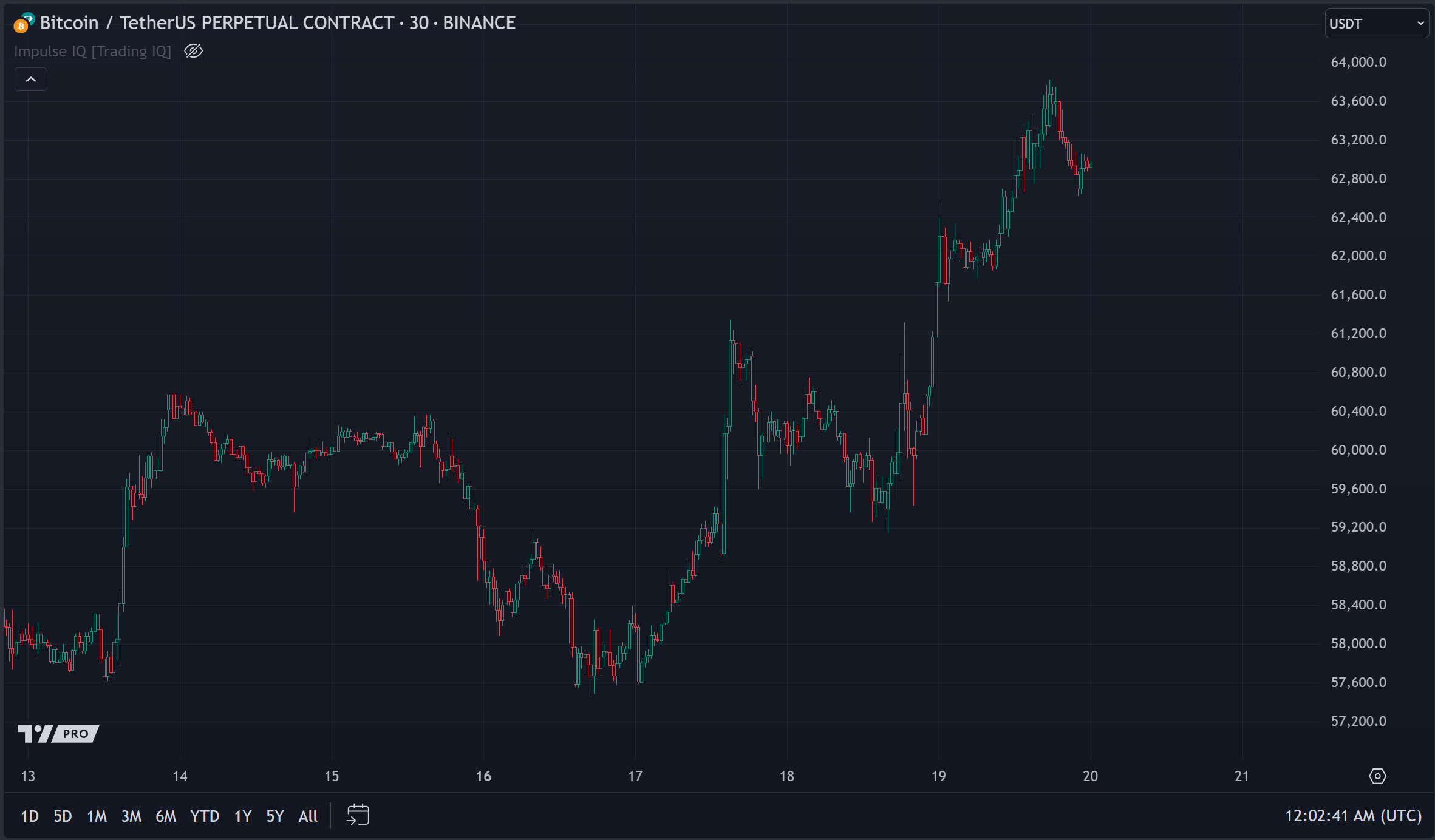
For this example we will use the 30-minute chart for BTCUSDT.P!
Step 2: Choose Impulse IQ's strategy type and trade direction.
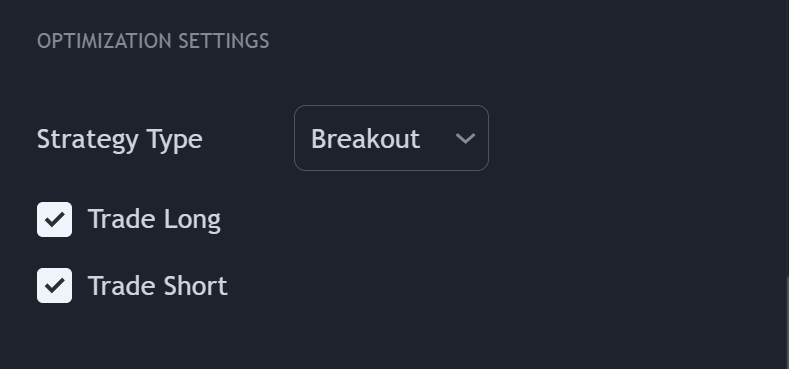
For this example, we'll use the "Breakout" strategy type and trade both directions.
Step 3: Enter the optimized parameters
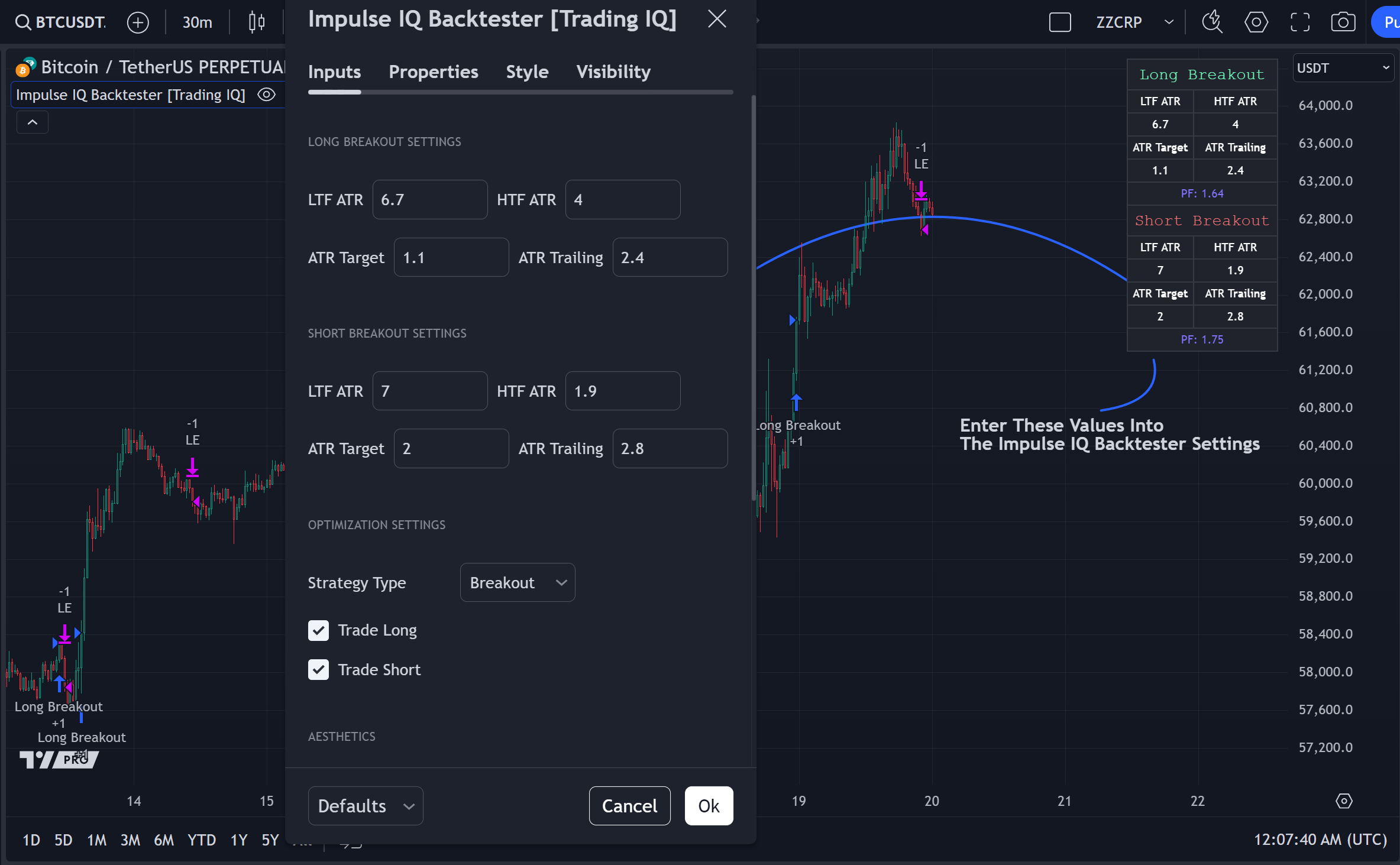
There's quite a bit going on here so let's cover it extensively!
In this image, the Impulse IQ backtester has finished finding optimized settings. The top-right table shows the optimal settings for the long strategy of Impulse IQ and the short strategy of Impulse IQ.
The Impulse IQ backtester has four* adjustable settings for both longs and shorts.
-LTF ATR -HTF ATR -ATR Target -ATR Trailing
The optimal LTF ATR, HTF ATR, ATR Target, and ATR Trailing long settings are shown in the upper-right table. Those values are "6.7", "4", "1.1", and "2.4". As shown in the image, we entered all of these values into the Long settings for the Impulse IQ backtester.
The optimal LTF ATR, HTF ATR, ATR Target, and ATR Trailing short settings are shown in the upper-right table. Those values are "7", "1.9", "2", and "2.8". As shown in the image, we entered all of these values into the Short settings for the Impulse IQ backtester.
Note
The "PF" column of the table indicates the optimized settings scored profit factor. The higher this number is - the better!
Step 4: Enter Commissions and Slippage
Go to the "Properties" table in the Impulse IQ Settings and change contract size, initial balance, commission, slippage, etc.
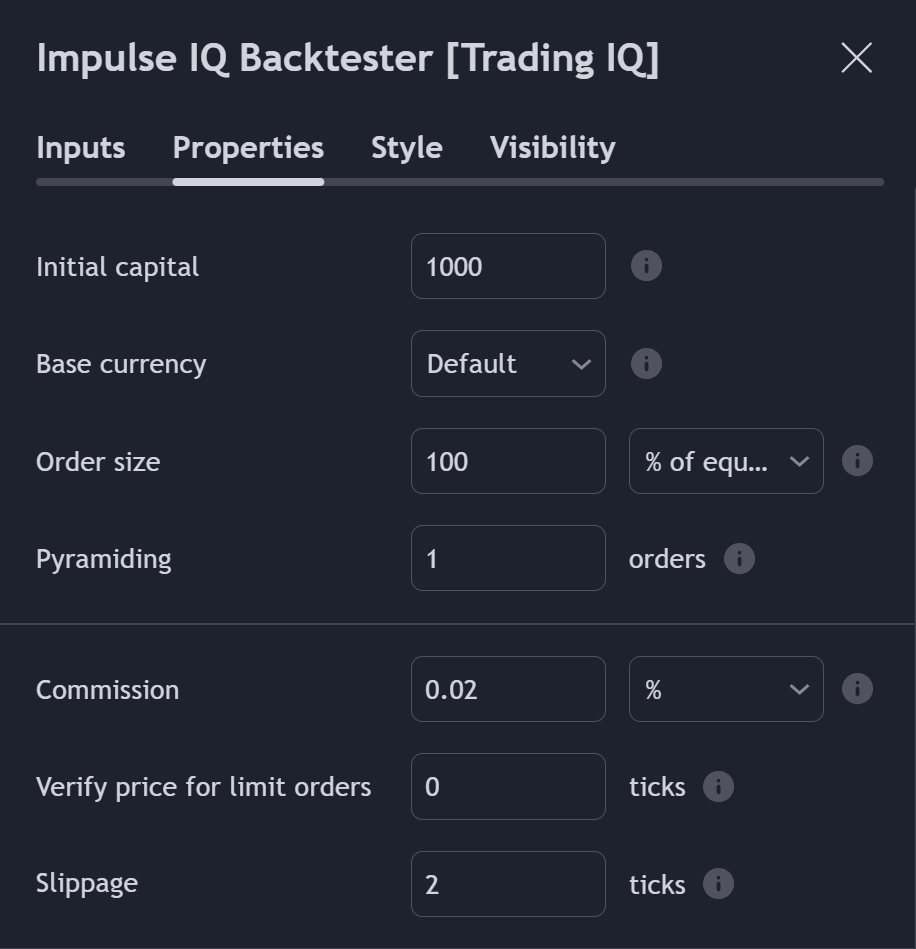
For this example, we're using a fee of 0.02%, 2 ticks slippage, $1000 starting balance. You can experiment with compounding and other portfolio tricks in this table!
Step 5: Evaluate Backtest Performance
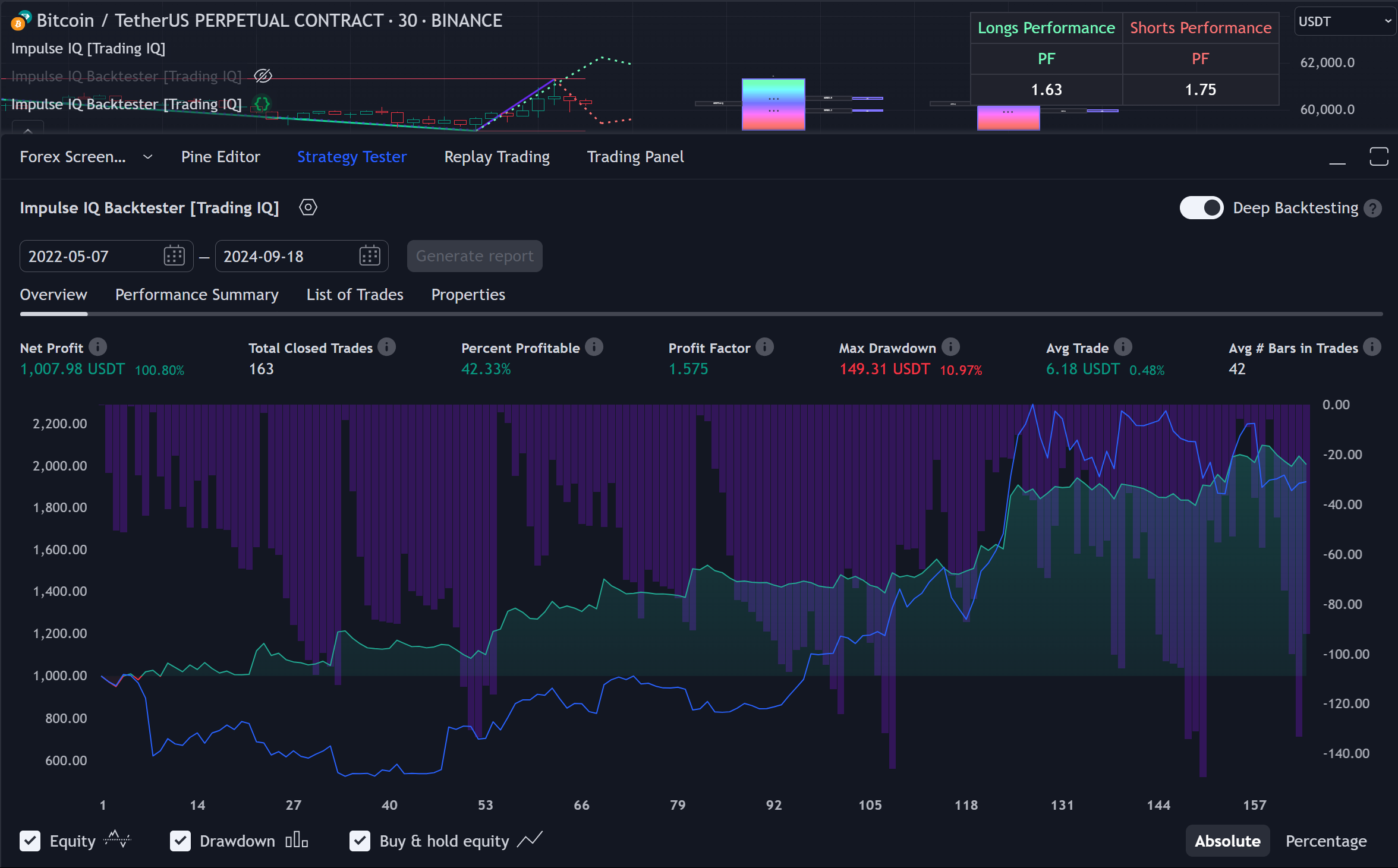
Voila! We successfully verified the performance of Impulse IQ in just a few minutes.
You can repeat this process for any asset on any timeframe.